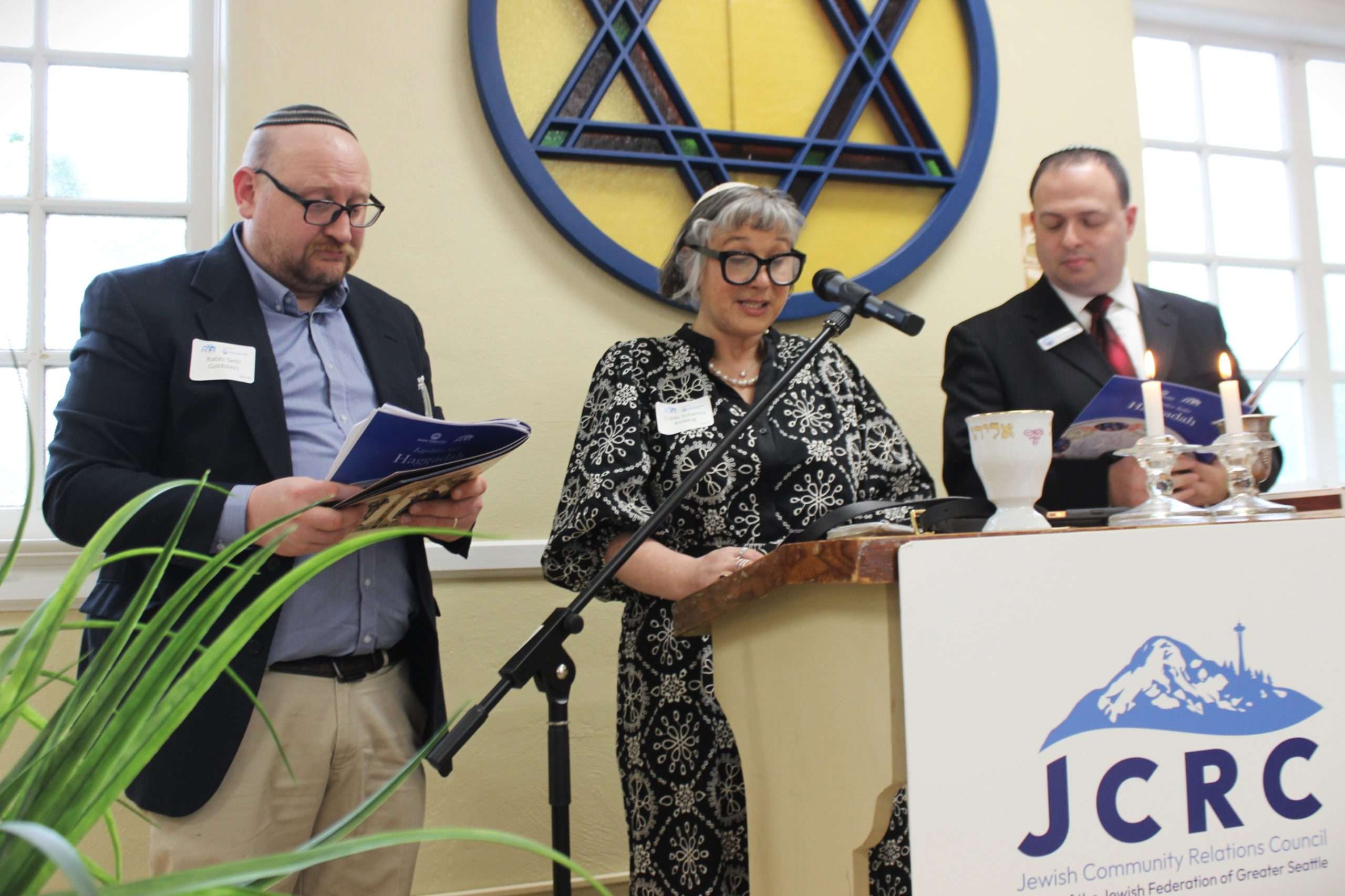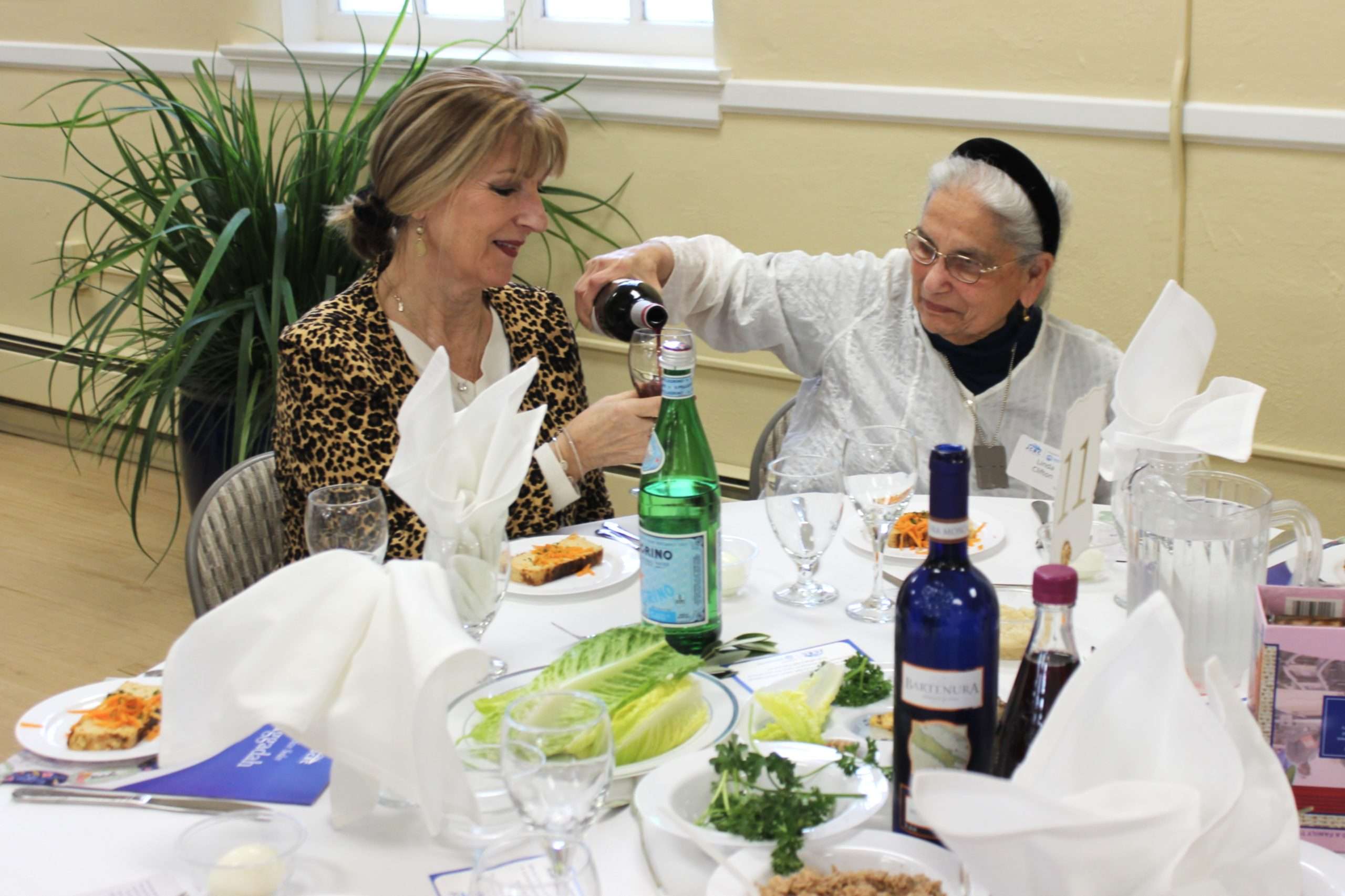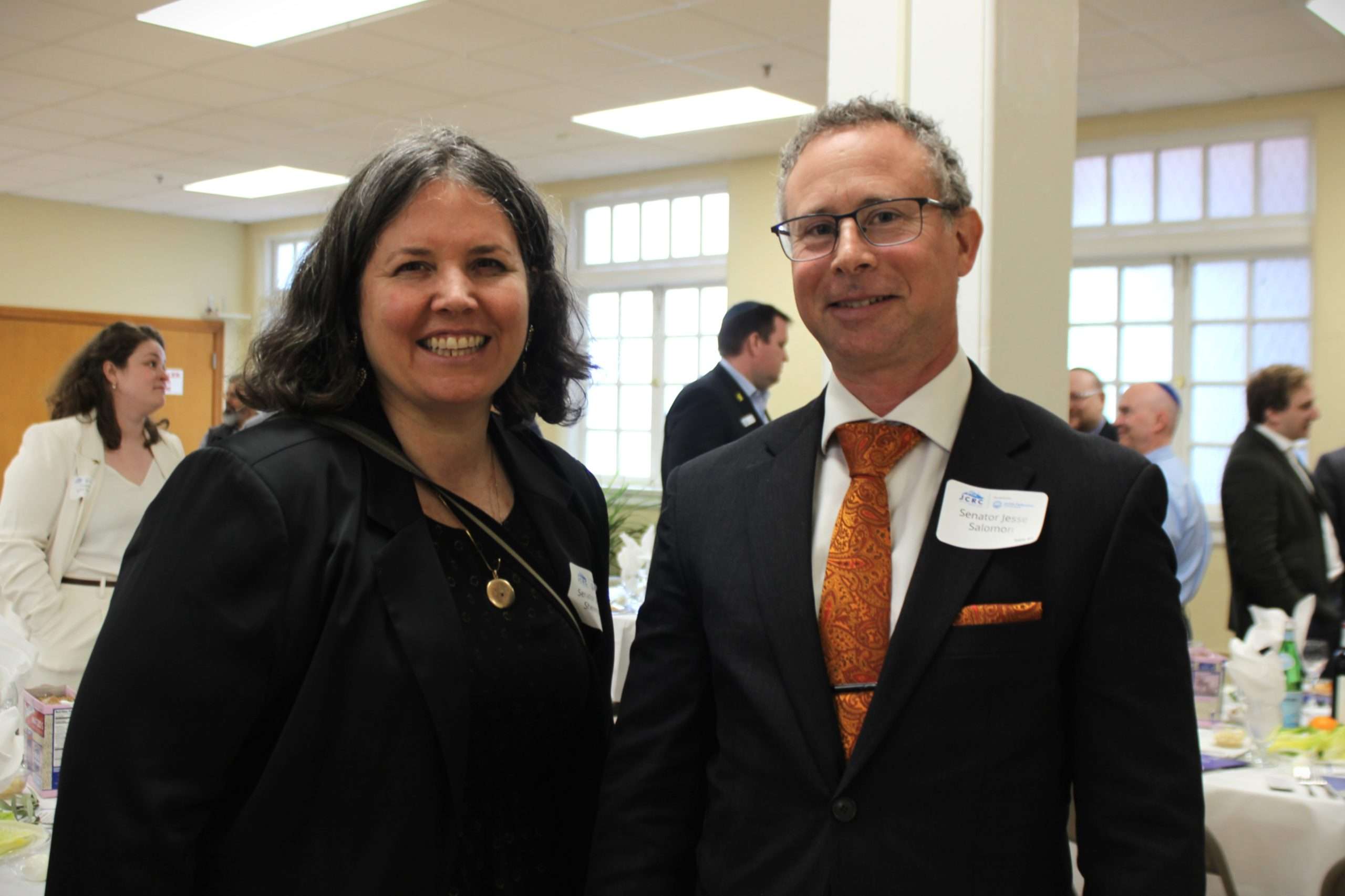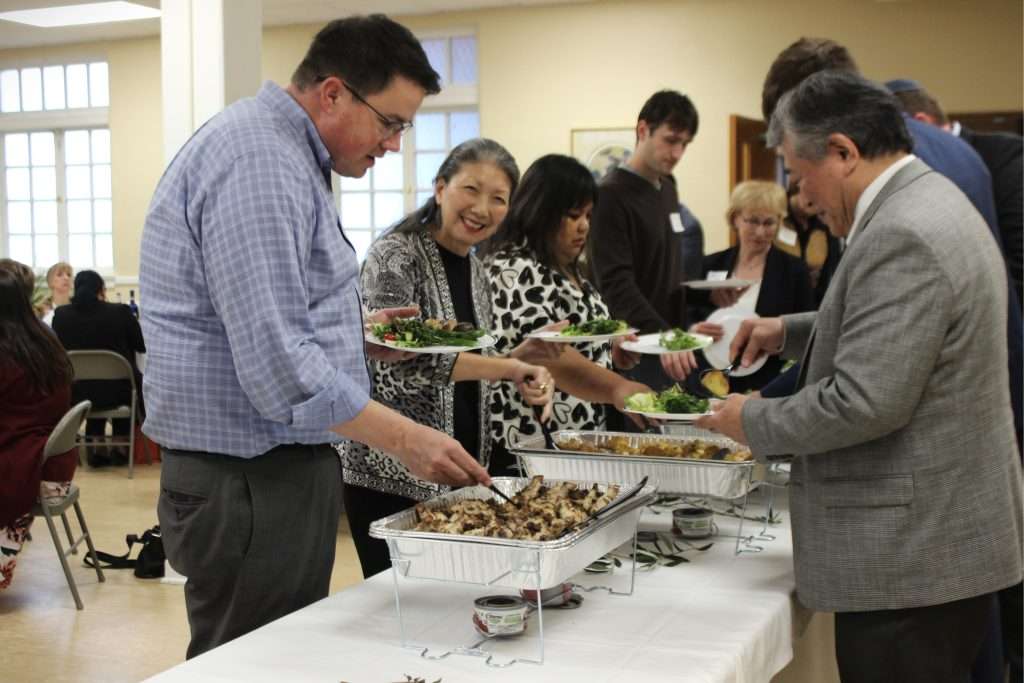Over 70 Civic Leaders Join Federation’s Jewish Community Relations Council for Passover Seder
April 15, 2025
Just blocks from the state capitol in Olympia, the Federation’s Jewish Community Relations Council (JCRC) brought together a diverse group of over 70 individuals, representing 21 legislative districts across Washington, for a biennial Legislative Passover Seder on April 9.
Among the attendees were notable figures from across the state’s leadership, including Washington State Supreme Court Justices Steven Gonzalez and Sheryl McCloud, Senate Majority Leader Jamie Pederson, members of the Jewish Caucus, and dozens of legislators, both Republican and Democrat. The seder also welcomed leaders who shape Washington’s landscape from the Office of the Governor, Department of Children, Youth, and Families, Office of the Mayor of Seattle, Office of the Insurance Commissioner, and many of the JCRC’s community partners that stretched across religious, ethnic, political, and social backgrounds. Guests were mixed across tables to encourage new conversations and connections that might not have happened otherwise.
“This is a night away from partisanship and all [its] complexity—a chance to just be free, together, and to meet new people.”
– Rabbi Jason Levine,
Federation’s JCRC Associate Director
“This is a night away from partisanship and all [its] complexity—a chance to just be free, together, and to meet new people,” said the JCRC’s Rabbi Jason Levine, who co-led the seder.
“I hope you will feel through this evening how the universal themes of Passover, like freedom and redemption guide your work, what it means to you to be a part of community, and how these rituals in the Jewish community resonate, or don’t, with some of the customs and rituals of your faith and identity,” remarked Solly Kane, Federation President & CEO, to begin the Seder, led by Temple Beth Hatfiloh’s Rabbi Seth Goldstein, Congregation Kol Ami Kirkland’s Rabbi Yohanna Kinberg, and Rabbi Levine.
Rabbi Goldstein guided the attendees through the heart of the Passover narrative, encouraging them to find personal connection within the story of oppression and liberation. He described the event as a vital act of “bridge-building” between the Jewish community and those serving the public in Washington’s government.
“It’s not a story of the past, but a story of oppression and liberation,” Rabbi Goldstein emphasized. “It’s a story of having a vision of the way things could be, and then acting on that vision to create the world we want. We know many of you [legislators] are committed to that work, and we join in that together as we come together for this Seder. Tonight gives us an opportunity to deeply engage with the story, to raise questions, to have conversations, to see what moves us, what challenges us, what inspires us, so that we can move away from this evening, from this Seder, with a new insight, with a new inspiration, with a new direction.”

With the majority of the attendees being non-Jewish, the Legislative Passover Seder served as a crucial opportunity to introduce the Passover Seder, as well as broader Jewish traditions, history, and values. This went beyond simply observing a ritual to fostering genuine understanding and connection.



“Passover Seder is a tradition of asking questions, so I want to invite you to ask questions as we share the experience,” said Kane. “I hope our Passover Seder will be a reminder that we all have a lot more in common than we have differences.”
The Seder unfolded with traditional rituals, including the lighting of candles and the breaking of matzah. Rabbis Levine, Goldstein, and Kinberg illuminated the symbolic significance of the Passover foods, offering insights into the historical and spiritual meaning behind each element. Throughout the seder, discussion questions encouraged attendees to share their stories and to engage with those around them.
“The Passover Seder was designed as a tool to teach the younger generation of Jews to really embody and experience what it means to be a slave, what it means to be liberated,” added Rabbi Kinberg. “So you can see there’s all this tasting and touching and questioning and all these tools that educators use to make something feel real. This is an ancient form of creating this interactive experience.”
Rabbi Levine brought the Seder to a close by explaining the profound symbolism of the final glasses of wine, dedicated to the prophets Elijah and Miriam. These cups, he noted, represent redemption and the enduring hope for a better future, emphasizing the Jewish belief in the responsibility of individuals to actively work towards positive change, a value known as tikkun olam, or repairing the world.

“That’s certainly the idea of Judaism,” Rabbi Levine stated. “Do we wait for God to come in and make everything all better? Or [is it] incumbent upon us? It’s incumbent upon us to make the world better and bring about those better days.”
As participants departed at the end of the night, they left with a feeling of community, connection, and warmth. They shared their gratitude to the Federation’s JCRC for a moment to learn, to embrace Jewish customs and rituals, and to engage with resonant messages of freedom and the necessity to engage in our collective work together.

The Jewish Federation of Greater Seattle is a 501(c)(3) non-profit organization.
Copyright © 2024 Jewish Federation of Greater Seattle. All rights reserved.